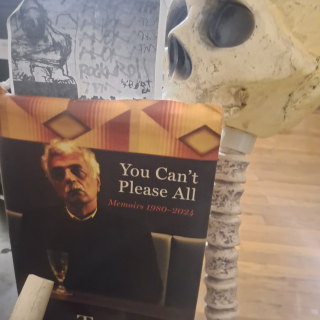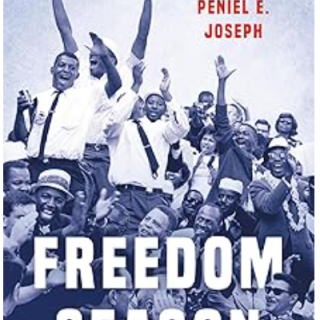Advertisement
In the 1970s, the country was struggling to recover from the dual tragedies of the Vietnam War and the Watergate scandal that toppled the Nixon presidency. That helps to explain why so many Americans were attracted to the “Moonies,” a Korean-born cult that promised to unite and heal the world.
Blessed Child is a documentary by and about a woman who was raised in a Moonie family and found the religion a comfort and an inspiration—until it wasn’t. Then it became an impediment to her happiness and threatened to drive a wedge between her and her devout parents.
Directed by Cara Jones and filmed by her brother Bow, the doc is a gentle yet wrenching portrait of a family that was at first united and later divided by the Rev. Sun Myung Moon’s Unification Church.
An early voice-over explains the church’s unique ideology. Moon believed in the power of marriage to help the world overcome sin and prejudice. Accordingly, he regularly organized mass weddings of couples he’d personally “matched,” often with the express purpose of combining people from different ethnic and religious backgrounds. He also discouraged premarital relations, being convinced that sex was the “original sin” that had driven Adam and Eve from the Garden of Eden.
Moon’s belief system appealed to idealistic young people like Cara’s future father, Farley Jones, who converted in the ’60s. Farley then persuaded a Catholic girl named Betsy to join up, and the two married (after being matched by Moon) and proceeded to raise four sons and a daughter in the Unification Church.
Contemporary interviews and home movies reveal that the family became something akin to Moonie celebrities after Farley was named president of the faith’s American branch. So prominent were they that young Cara began to hope she eventually would be matched with one of Moon’s own sons. It’s probably not a coincidence that her faith began to wane when she wasn’t, instead being paired with a man who felt more like a younger brother than a husband. But by the time her marriage ended in divorce, it also had become clear that Moon wasn’t quite as pure and angelic as he’d seemed.
While it spends sufficient time explaining the eccentricities and shortcomings of the Unification Church, Blessed Child’s main theme is the lasting effect it’s had on former members like Cara. Long after leaving the church, many still struggle with feelings of failure and regret that make it difficult to get on with their lives. And it’s all the harder for people like Cara whose parents remain true believers.
If the documentary has one weakness, it’s that Cara’s central tale is almost overshadowed by that of her brother Bow. As a boy who realized early on that he was gay, Bow couldn’t feel at home in a faith devoted to heterosexual marriage. And yet he was—and apparently still is—as susceptible as anyone to its idealistic vision of a world united by love and acceptance.
Blessed Child takes us on an engrossing journey as it relates Cara’s efforts to heal old wounds and come to terms with her past. Even so, the closing credits may leave viewers with a nagging question: But what about Bow?



